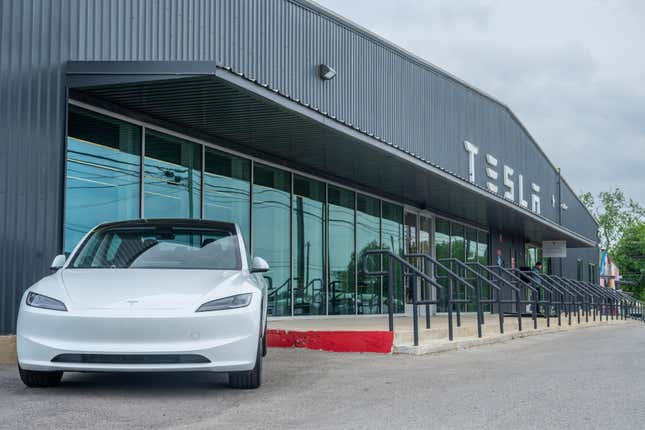
In This Story
Tesla is recalling more than 1.8 million electric vehicles in the U.S. because of a software issue that could let the hood fully open and block the driver’s view while on the road.
The recall affects most of Tesla’s cars on the road from its main four models — the Model S, 3, X, and Y, according to the National Highway Transport Safety Administration (NHTSA). The Cybertruck electric pickup — which was itself the subject of a recall last month — is not included in the latest recall notice, which was issued on July 24.
After a customer opens the hood of their car, its latch assembly may not detect that it is open, according to the NHTSA. As a result, when the car is put into drive, the vehicle may not notify the driver that the hood is still open. That can leave the hood fully open, obstructing the driver’s view while on the road and increasing the risk of a crash.
Tesla said it is not aware of any crashes or injuries related to the issue. It has identified three related warranty claims as of July 20, according to documents posted by the NHTSA.
Tesla began delivering a free over-the-air software update to customers on June 18, which will detect the open hood and notify the driver. Vehicles currently in production received the new software on July 15. Owners will be notified of the issue on Sept. 22, the NHTSA said.
A recall is issued when a manufacturer or the NHTSA determines that a vehicle creates an “unreasonable” safety risk or fails to meet minimum safety standards. Tesla often relies on its over-the-air software updates to streamline the maintenance process and reduce costs. Tesla and its supporters have long argued that its software updates shouldn’t be labeled a recall and have called for the NHTSA to update its rules and terminology.